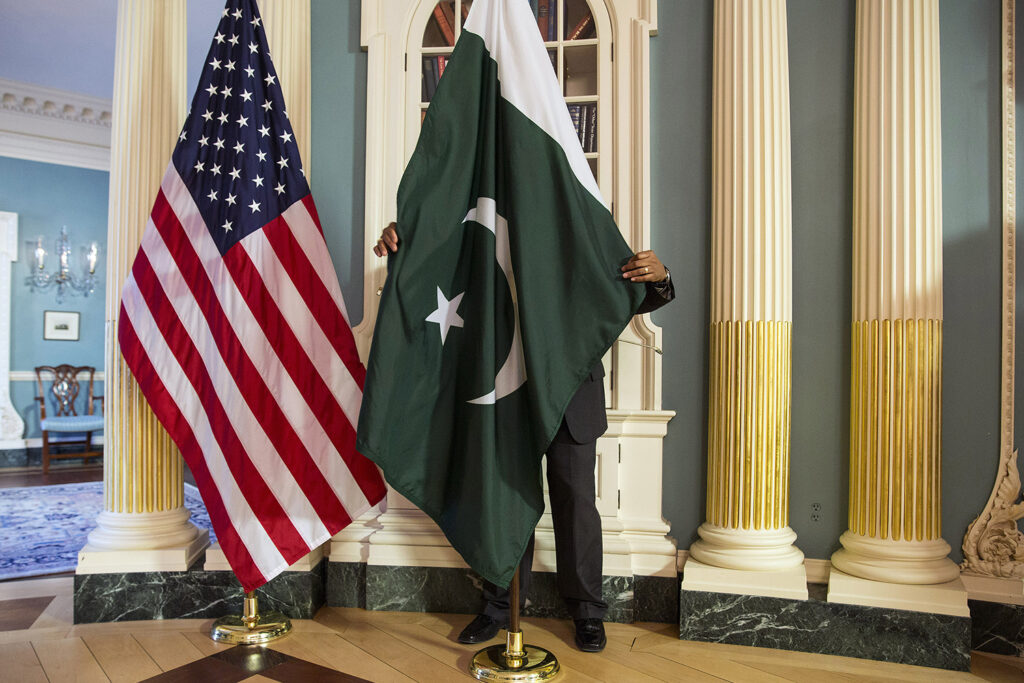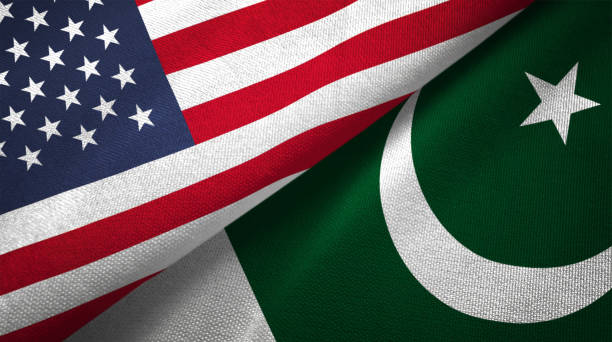Economics of a National Security State
The Truth International Magazine Article
As the title of the article suggests; Pakistan has remained the captioned state for much of the time of its existence. Such a state by definition needs an international stakeholder; who has very good communication linkages with the internal stakeholders. In the case of Pakistan, the external stakeholder has been the Capitalist world led by the United States.
The PENTAGON formalizes the relationship on the American end. At the internal stakeholder end, sans for the first few years of the independent nation-state called Pakistan, it has been the Pakistani military establishment, which has managed the affairs.

Pushing the argument further, the external stakeholders’ stakes in the dominant role of the internal stakeholder automatically decide the direction of the client state; in that case Pakistan. Right from the days of the Cold War to the Afghan Jihad War, to the War on Terror and its fallout, the dominant role has helped define the hard truth. Pakistan, even though the circumstances of its formation were democratic; federating units decided in the 1940 Resolution of Lahore; 1946 elections were very much the forerunner for the first administrator legislature in post-independence Pakistan. The nation-state, which was formulated out of the process, has attained the role of the national security state and not a welfare state.
It is ironic to note that the United States while dictating the militaries of other states to maintain a dominating role in their respective nation-states, it has maintained, the dominance of civilian rule or the rule of the law; until 9/11, when the homeland security setups justified abuse of the human rights. The militaries inclusive of Pakistan automatically played the tune of national security imperatives as the cornerstone of the nation-state. The military being the organized unit of the administration was able to market its importance, and influence, and justify its share in the natural resources.
The resultant configuration of a national security state is geared towards threat perception and the welfare aspect of the state takes a second seat. Here it is pertinent to note that each state, whether a national security state or the welfare state ought to have some threat perceptions stemming out of historical context, a geographical position as well as a host in internal and external factors. These perceptions are acceptable; until they do not knock at the welfare aspect of the state, which is equally important in the 20th-century configurations of welfare-based nation-states.
In the Pakistani case, the contradiction stemmed from the fact that the welfare aspect of the state was completely done away with. The national security aspect practically hijacked the state for all times to come; though the civilian side undertook the initial surrender. Here we may recall the fact that Pakistani participation in the US defense programs had started before the formal takeover by Ayub Khan in 1957/58. The takeover and US support for the same under the name of Soviet/Communist threat only formalized the recognition of the new role of the Pakistani nation-state, a national security state.
That national security state prioritized a huge chunk of the budget for the military under the pretext of those very threat perceptions cultivated; sometimes under the Communist Threat, Al Qaeda threat, or any threat perceived as influencing the unity of the federation. As a resultant position; Pakistan has continued to be low in the Human Development Indicators Index. The spending on education, health is minimal. The state seems to have surrendered the education sector to the private sector unscrupulous businesses. The health sector is taken care of by the philanthropists.
That dismal state of the HDI has been responsible for an ever-increasing army of poor. These poor are good cannon fodder for the exploitative industry, equally merciless agriculture sector, and the urban political elite.
The last name formalized in the form of political parties has been merciless in exposing the army of the poor to adventures; which they would not delve into. The recent incidents where the above-mentioned elite disowned the political movement, while the poor were exposed to even extra-judicial killing by trigger-happy LEA, have further exposed the class-based fault lines.
Coming back to the national security state set up in Pakistan, the other aspect that seems to influence the economic and political roadmap of the state has been the non-development of a knowledge-based economic infrastructure in the country. Pakistan does not figure prominently in innovative export avenues like the jewelry sector or the IT sector.
If there are strides in them, they are erratic in nature and do not yield enough revenue to help populate the country’s foreign exchange reserves. Instead, right from the cold war until the Ukrainian conflict, Pakistan has relied upon international geo-political linkages for keeping the Dollar stable. Readings on Ayub Khan’s economic strategy, Zia ul Haque years, and Musharraf’s so-called Paris Club breathing spaces all revolved around the ‘jobs did’ nature of the Pakistani economic dividends. Whatever economic planning was in place was accidental in nature; not driven out of a genuine will to do so.
That aspect of national security weighed against economic linkages can be best gauged by how the country remained without connectivity for e-commerce, bills payment, or POS payments, just because of the ill-advised step by the interior minister in the backdrop of May 9, 2023 events that the unrestrained connectivity compromised security.
The country’s top decision-makers could fathom the scenario of being cut off from digital payments coming into the country’s banking system for work done like content formulation on websites like FIVERR etc. The embarrassing scenario was illustrative of the fact that the state was more interested in getting the tranche of IMF based on ‘jobs did’ than anything to do with actually encouraging economic activity in the society. It was not before that a saner voice from the establishment itself and the political front men i.e. PPP & PMLN raised concern that the internet was back for e-commerce.
As things stand, the IMF program is a non-starter. The international geo-political linkages are not ready to feed Pakistan for long unless Pakistan can come up with some big assurances in a fast-developing international fault line. Pakistan is torn between its erstwhile Western patrons and its regional realities. Even to formalize smuggling along Pakistan and Iran border, the border markets were set up. It took less than 48 hours when a non-state actor was put into action to kill five IRGC guards along the border to act as a dampener to legitimate trade, where the governments concerned also earn revenue and supplies are assured.
Given the national security state character of the Pakistani nation-state, it is not much hard to identify, who are the stakeholders against these trade opportunities. Conclusively, in the fast-changing world, the national security state doctrines, whether they stem from war colleges brainstorming sessions or hybrid political setups; are pathetic nonstarters. The current political crisis and the unguarded perceptions it has created among a large cross-section of the public above the political grouping basis can be the positive aspect for a greater public rule in steering the economic and geo-political destiny of the nation; than a selected few. The economics of the national security state had to give way to a greater role to an intellectual elite that can think beyond ‘threat perceptions’; towards a knowledge-based growth strategy; nurtured through a better HDI index.
Note: The Writer is an economist, analyst, and freelance author.


